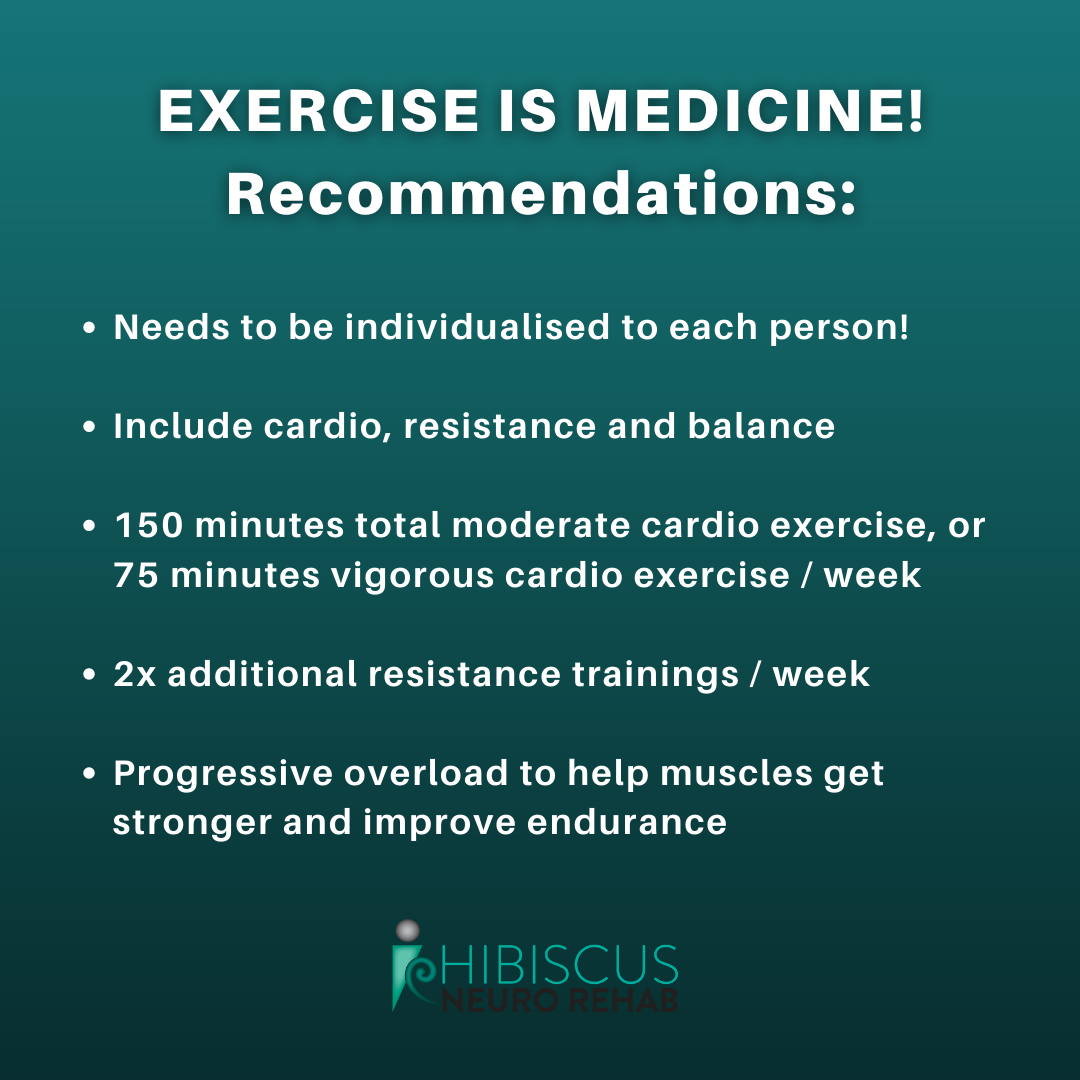|
As we get older, our muscle strength reduces and there can be changes in our balance, mobility and fitness.
In the presence of adequate exercise, these changes in muscle strength and fitness with age are substantially attenuated. Exercise is a preventive strategy for many chronic diseases, including cardiovascular disease, stroke, diabetes, osteoporosis, and obesity; improvement of mobility, mental health, and quality of life; and reduction in mortality, among other benefits. Exercise intervention programmes improve the hallmarks of frailty (low body mass, strength, mobility, physical activity level, energy) and cognition, optimising functional capacity during ageing. Here are the recommendations for older adults who are 65 years and older, being that of 150 minutes moderate cardio training each week, plus 2 strength trainings per week (according to the WHO's global recommendations). Remember that exercise should be individual to you, as everyone has different health conditions or circumstances, so this may need to be altered accordingly. If you are unsure or need help devising an appropriate programme, please contact us so we can help you! For those who are interested, there is a great article (Expert Consensus Guidelines) that summarises recommendations according to various circumstances, including if you want to improve bone density specifically or help increase lean mass, for example, and discusses different modalities for each circumstance. Izquierdo, M., Merchant, R.A., Morley, J.E. et al. International Exercise Recommendations in Older Adults (ICFSR): Expert Consensus Guidelines. J Nutr Health Aging 25, 824–853 (2021). Comments are closed.
|
�
Categories
All
Archives
July 2023
|
|
Contact Us
Give us a call or send us an email to find out how we can help you on your rehab journey Phone 09 424 3254 [email protected] Visit us 3/55 Karepiro Drive, Stanmore Bay, Whangaparaoa |
Cancellation Policy:
Out of courtesy to your therapist, and other clients who may be waiting for an appointment, please inform us of cancellations as soon as possible.
Cancellations Charges: Short notice cancellations within 48 hours of your appointment or reschedules will incur a late cancellation fee of 60%.
For block bookings, one session will be deducted for three cancelled appointments.
Please be aware that ACC does not cover all cancelled appointments.
How to Cancel Your Appointment
If you need to cancel your appointment, please call us at 09 424 3254 between the hours of 8am – 5pm. If necessary, you may leave a detailed voicemail message. We will return your call as soon as possible.
Late Cancellations/No-Shows
A cancellation is considered late when the appointment is cancelled less than 48 hours before the appointed time. A no-show is when a patient misses an appointment without cancelling. In either case, we will charge the patient a 60% missed appointment fee.
Out of courtesy to your therapist, and other clients who may be waiting for an appointment, please inform us of cancellations as soon as possible.
Cancellations Charges: Short notice cancellations within 48 hours of your appointment or reschedules will incur a late cancellation fee of 60%.
For block bookings, one session will be deducted for three cancelled appointments.
Please be aware that ACC does not cover all cancelled appointments.
How to Cancel Your Appointment
If you need to cancel your appointment, please call us at 09 424 3254 between the hours of 8am – 5pm. If necessary, you may leave a detailed voicemail message. We will return your call as soon as possible.
Late Cancellations/No-Shows
A cancellation is considered late when the appointment is cancelled less than 48 hours before the appointed time. A no-show is when a patient misses an appointment without cancelling. In either case, we will charge the patient a 60% missed appointment fee.



 RSS Feed
RSS Feed
